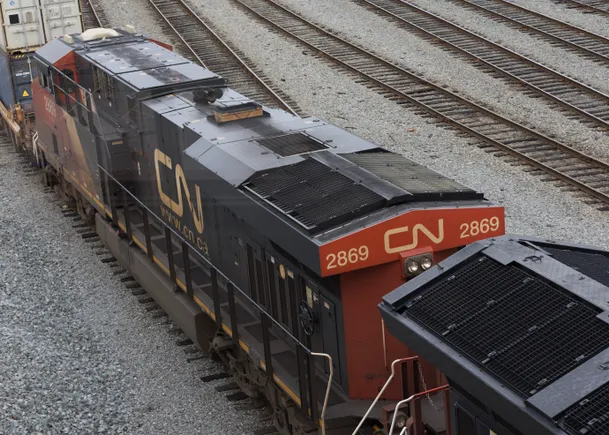One of Canada’s major railroads moved to restart operations and end a lockout of their union workers, according to announcements Thursday evening.
Canadian National Railway ended its lockout at 6 p.m. ET Thursday, with workers returning to their posts today, according to a statement from the Teamsters Canada Rail Conference Friday morning. Canadian Pacific Kansas City’s work stoppage continues, however, pending an order from the Canada Industrial Relations Board.
“Despite the Labour Minister’s referral, there is no clear indication that the CIRB will actually order an end to the labour dispute at CPKC,” the union said in its Friday morning statement.
The union and representatives from CPKC and Canadian National met with the industrial relations board Thursday, with another meeting set for 10 a.m. ET today.
A spokesperson for the industrial relations board wrote in an email Friday that the CIRB is addressing Canadian Minister of Labour and Seniors Steven MacKinnon’s referral “with utmost urgency.” Trains at either railroad cannot start running until the board makes a decision.
The decision to restart operations at CN follows action by Canada’s Minister of Labour and Seniors Steven MacKinnon, who announced early Thursday evening that he directed the Canada Industrial Relations Board to impose final binding arbitration and have the Teamsters Canada Rail Conference complete new deals with both railroads.
MacKinnon also directed the Canada Industrial Relations Board to extend the term of the union’s contracts with each railroad until a new collective agreement is signed.
“The government has acted to protect Canada’s national interest,” CPKC President and CEO Keith Creel said in a statement. “We regret that the government had to intervene because we fundamentally believe in and respect collective bargaining; however, given the stakes for all involved, this situation required action.”
Agricultural and other industry groups had called on Canada’s government to take action to avoid a strike, warning the potential for billions of dollars of economic damage from a prolonged work stoppage. Fertilizer and bulk commodities rely on rail for the majority of shipments, and companies said transportation disruptions could force plants to shut down.



